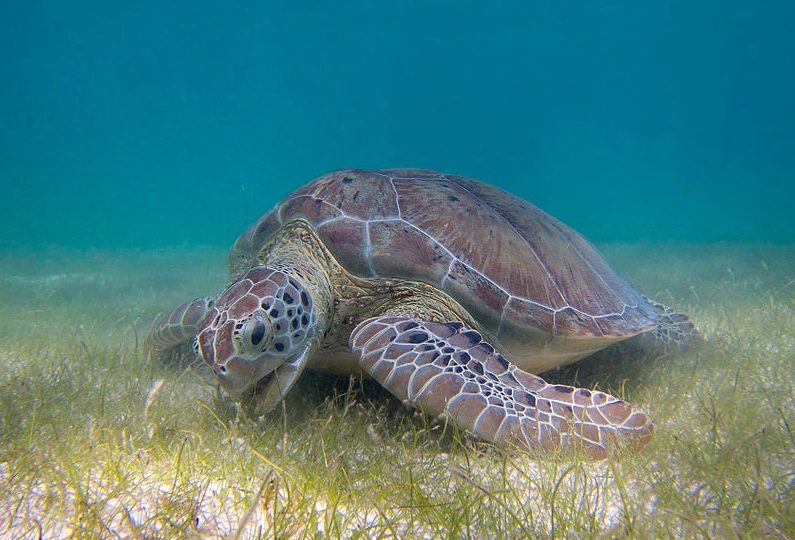The trade of all turtle species, turtle products and their eggs may be illegal under Indonesian law, but a recent accident involving a truck transporting more than a dozen sea turtles in Bali last week revealed a glimpse into how weak law enforcement enables the trade to continue on the black market.
“Law enforcement is weak. [Police] are the one who must enforce them. We are not authorized to crack down on [illegal trade],” Permana Yudiarsa, an official from the Coastal and Marine Resources Management Center (BPSPL) in Bali, told Tribun-Bali recently.
Last week, a truck driver reportedly transporting 18 sea turtles crashed his vehicle on Sunset Road, Kuta. Yudiarso saw the incident as another signal into how illegal trade of turtle meat still exists on the island.
A special report by Tribun-Bali seems to have reaffirmed this, wherein a number of food stalls were found to offer turtle meat on their menu. In fact, one of the owners of these establishments claimed that the turtles from the accident last week was his order.
“Many police officers and people from the prosecutor’s office often come by to eat [turtle meat] here,” the owner reportedly said.
Cases involving turtle meat in Bali are not exactly new. In March, police officers from Gianyar regency managed to save 13 live green turtles from a suspected illegal turtle meat trade. That was followed by another case in April, in which officials seized 280 kilograms of turtle meat from a truck at the Padangbai port.
Sulistyo Widodo, an official from the Natural Resources Conservation Center (BKSDA) in Bali, said that turtle meat traded in Bali usually comes as ready-to-sell meat items, and highlighted that Ketewel village in Gianyar regency are quite known for dishes with the illegal products.
Indonesia’s 1990 Conservation Law categorizes sea turtles as protected species, and violators could face up to five years’ imprisonment and a maximum fine of IDR100 million (US$7,056).
Yudiarsa highlighted that the continued illegal trade in Bali is due to existing demand, emphasizing on the importance of “political will” to curb the activity.
“It’s simply about will. Political will … There must be a will coming from the regional government and also the consumers themselves. It must be a joint commitment,” Yudiarsa was quoted as saying.
Listen to headline news and insightful interviews on matters large and small from Southeast Asia and Hong Kong on The Coconuts Podcast!




